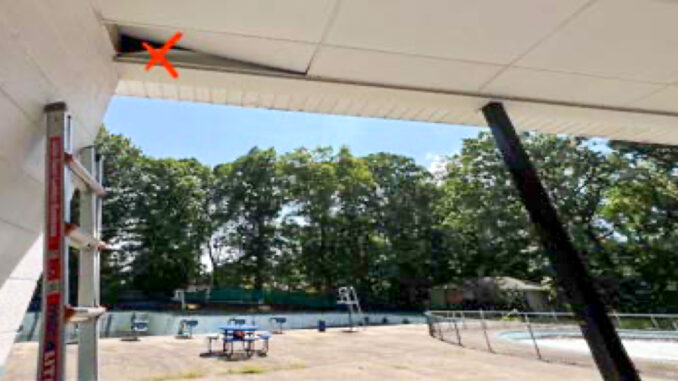
TOWNSHIP OF WASHINGTON—Township Administrator Mark DiCarlo reported Oct. 20 that a nearly $84,000 grant to reimburse preliminary studies of contamination at the former Washington Township Swim & Recreation Club was recently approved by the New Jersey Economic Development Authority (NJEDA).
The funding, filed under the NJDEP Hazardous Discharge Site Remediation Program, will cover work related to identifying PCBs, lead, and other contaminants found at the Swim Club site in late 2024. DiCarlo said the township expects official notification of the $83,931 award soon.
He noted that Boswell Engineering has not yet provided a cost estimate for the cleanup.
In a separate update, DiCarlo said Lisko Environmental of Belmar had received three cost estimates to remove lead-contaminated soil at 450 Pascack Road, where earlier testing found contamination mostly confined to areas around the house.
A final review of proposals is underway, with a recommendation expected within a week.

Once a contractor is approved—possibly at the next council meeting on Nov. 3—soil excavation and removal will proceed, followed by demolition of the site’s structures. The remediation is being funded from a $250,000 escrow account established by the seller as part of the property’s $750,000 purchase price.
Responding to questions from Council President Michael DeSena, DiCarlo said demolition costs would be covered by a prior grant obtained for the 450 Pascack project.
He added that remediation of any lead inside the structure will be included in the demolition contract, with contaminated materials either treated onsite or removed to an approved disposal facility.
An engineer advised that removing all contaminated material at once might be most efficient, though it would add cost.
DiCarlo also reported that the Musquapsink Brook Emergency Stream Stabilization Project, resubmitted earlier this year to address severe erosion around two sanitary manholes, has been approved by the NJDEP. The township’s next step is to submit a soil erosion and sediment control permit to Bergen County.
“From there, the final touches will be put on the project bid and specification documents,” DiCarlo said, adding that the township hopes to go out to bid “sometime in December or sooner.”
Councilman Michael Ullman asked when construction might begin. DiCarlo said he hopes the streambank stabilization could start within two to three months.
The council approved a $700,000 bond ordinance in May 2024 to fund the emergency stabilization work after debate over the late budget addition.
The “critical sanitary issue” was first identified nearly a year earlier through a township-sponsored Musquapsink Brook drone study by Boswell Engineering.
